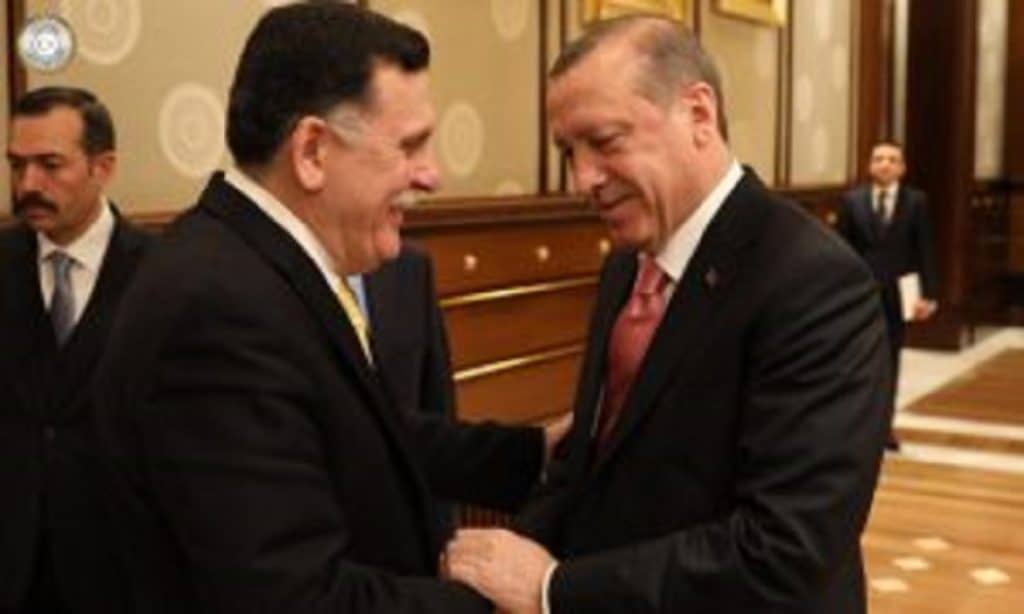By Denis Korkodinov
Regional tensions in the Middle East led to an escalation of the conflict in Libya. Opposing coalitions, represented, on the one hand, by Abu Dhabi, Riyadh, Cairo and Tel Aviv, supporting the Libyan National Army, and, on the other hand, by Ankara and Doha, advocating the government of Faiz Saraj, are at risk among themselves in a bloody struggle. Turkey will probably play a special role in this confrontation.
The military campaign undertaken by Khalifa Haftar suffered a fiasco as a result of the loss of control over the strategically important city of Garyan. This was possible largely due to the fact that Turkey acted on the side of the official government of Tripoli, which provided the regime of Faiz Saraj with considerable support not only with equipment but also with military personnel. After the loss of influence on Garyan, the hopes of the Libyan National Army to seize the Libyan capital become unrealistic.
But more recently, Khalifa Haftar’s forces had a significant advantage. He managed to seize Sorman and Al-Adzhalayt without serious resistance from the government forces and local tribes. However, the more rapidly the LNA offensive in western Libya was, the more fear Ankara had, which took the actions of the Libyan field marshal as a threat to their interests. For this reason, Turkey has begun regular deliveries of military equipment to groups of forces that are on the side of the official government of Libya.
The Libyan National Army and Turkey were on the verge of a real military conflict after, by order of Khalifa Haftar, Turkish citizens accused of espionage were arrested in the areas under their control. The government of Recep Erdogan was forced to intervene, unambiguously telling the LNA leadership about the likelihood of a military attack.
This was followed by a statement by the Libyan field marshal of readiness to attack any Turkish targets that would be within the reach of the LNA. To this Ankara responded with the threat of war. Now, the parties to the conflict have reached a dangerous point, when even a minor provocation in Libya can provoke a full-scale military campaign on the part of Turkey.
Entering opposition with the LNA, Turkey wants Tripoli to be controlled by a friendly government, which would allow the use of large oil and gas fields in Libya. Against the background of the aggravation of the Iranian-American confrontation and possible American sanctions due to the purchase of Russian S-400 systems, the demand for alternative sources of “black gold” for Ankara is particularly relevant.
Among other things, Turkey’s interest in Libya is also due to fears that Greece may also support the LNA. Khalifa Haftar could guarantee the recognition of the Greek sovereign rights to a disputed sea space near the borders of Libya, in exchange of military and diplomatic support. Under these conditions, Athens could not resist to the temptation to be drawn into the Libyan conflict for the sake of its own interests.
Thus, Ankara is likely to intensify its military engagement to put pressure on LNA forces. However, for Tripoli, this does not mean that the conflict will be resolved in the foreseeable future.
(The opinions expressed in this article are solely those of the author and do not necessarily reflect the views of World Geostrategic Insights).
Image Credit: Libya Herald







